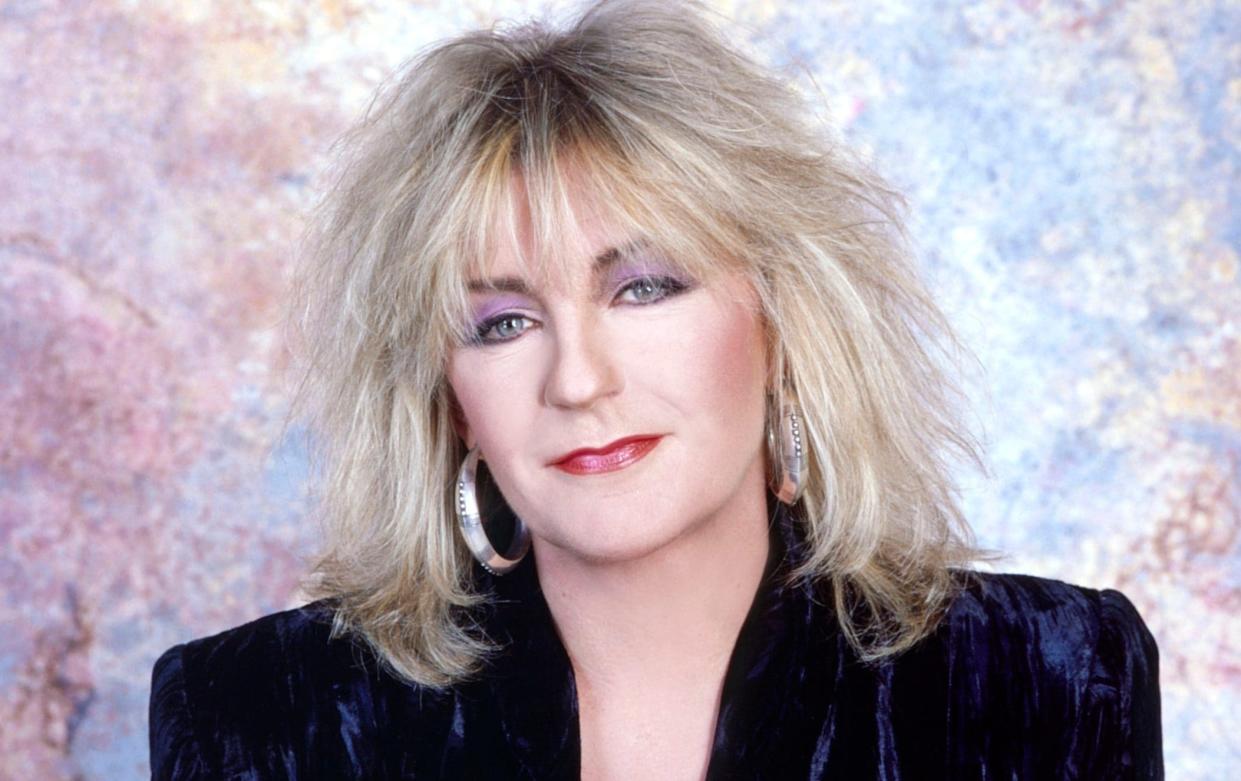Christine McVie brought the sweetness and optimism to Fleetwood Mac

The songbird has fallen silent. Christine McVie has died, aged 79. As an essential member of the classic lineup of Fleetwood Mac, the singer and keyboard player was responsible for deathless songs that are embedded in the collective consciousness of the rock generation, most notably Don’t Stop, You Make Loving Fun and Little Lies. To demonstrate her importance to this most revered of rock bands, eight of her songs appear on Fleetwood Mac’s multi million selling 1988 Greatest Hits album.
McVie was Perfect, really and truly. Christine Perfect was her actual given name. And from the very beginning, she was a pioneer, a classically trained musician who loved the blues, and made her way as a woman in a man’s world, always part of the band rather than a star. The Lancashire born Perfect played with hard working midlands blues band Chicken Shack throughout the sixties, scoring a hit with her version of I’d Rather Go Blind. She came to the attention of London blues rockers, Fleetwood Mac, and began performing with them as an uncredited backing musician, appearing live and playing piano on 1968’s Mr Wonderful, and contributing backing vocals (and painting the cover) for 1970’s Kiln House.
She fell in love with bassist John McVie (the Mac part of the band name), and after their marriage in 1970 became an integral part of the group, encouraged to write and express herself by drummer Mick Fleetwood (the other half of the band name). But it wasn’t until guitarist Lindsey Buckingham and singer Stevie Nicks were recruited for the 1975 Fleetwood Mac album that her talent really took wings, with her standout songs Over My Head and Say You Love Me. The subsequent breakup of her marriage as they got swept away by fame gave her renewed creative impetus, as the band of warring couples made 1977’s world beating Rumours.
For the members of Fleetwood Mac, everything was falling part just as everything came together. The McVies’ marriage ended, Mick Fleetwood was in the middle of a messy divorce and a ten-year romance between Buckingham and Nicks came to a bitter end. Rumours is justly celebrated as one of the great break-up albums, making the dark side of love palatable with a bittersweet tension between the strong emotional content and uplifting quality of shimmering, harmonised, easy rocking arrangements. What is notable about Christine McVie’s contributions is the sweetness and optimism that offsets any sadness or bitterness. Throughout her songwriting career, she infused her work with romantic positivity, that was a perfect match for her lovely, clear voice.

She had two great alliances in the band. One was multi-instrumentalist Buckingham, who once told me “Christine and I had a great thing. It was almost like we were brother and sister, and we had an intuitive relationship, it just happened naturally, the way we fit together musically was so great.” Those two impeccable musicians and songwriters were at the centre of the harmonic flow of Fleetwood Mac. But her other significant bond was with Nicks, who has called McVie her “mentor, big sister and best friend.” They were two women, in a band with three men, in a male dominated music industry, determined not to be intimidated or exploited.
"We felt like, together, we were a force of nature," according to Nicks. "And we made a pact, probably in our first rehearsal, that we would never accept being treated as second-class citizens in the music business. That when we walked into a room, we would be so fantastic and so strong and so smart that none of the uber-rockstar group of men would look through us. And they never did."
It may be that, alongside those classic songs, it was this sense of assuredness and belonging that was McVie’s greatest achievement, and her gift to every woman who looked up and saw her on stage, an essential player in one of the greatest and most popular bands on earth.
But Christine McVie also did something else for which she should be righteously credited. She walked away when it all got too much. In 1998, she left Fleetwood Mac, for a multitude of very sound reasons. On a practical level, she had developed a fear of flying. On an emotional level, she was tired of the pressure of constant recognition. And on a very personal level, she just wanted to come home to England and make a home for herself, living a quiet life in a 17th century mansion she had bought in Kent. She stayed out of the limelight for almost a decade, until the lure of music got too strong. McVie rejoined Fleetwood Mac in 2014 and was a key part of their last two great world tours. To see those shows was a privilege, an immaculate song machine firing on all cylinders.
I met Christine once, in a bar in a hotel, and had a lovely chat with her. She seemed very down to earth and direct, not starry at all. She always said she preferred to be part of the band than a solo star. She happened to be part of one of the all-time great bands, always there with the right keyboard line, the right harmony, and when it came to her turn in the spotlight, the right song for the moment. To hear a whole arena or stadium joining in with the refrain of Don’t Stop “thinking about tomorrow” was blissfully uplifting. The passing of Christine McVie surely marks the end of one of the great rock and roll sagas. Thank you for the music, Christine. To quote your own lyric, from the glorious, fragile, classic gem Songbird: “For you there will be no more crying / For you the sun will be shining … and the songbirds will be singing, like they know the score.”


